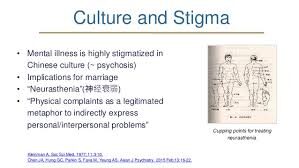 Please describe an interpersonal conflict you experienced and how you went about resolving it.
Please describe an interpersonal conflict you experienced and how you went about resolving it.
While volunteering as a tutor with an afterschool program, Brandon a Chinese-American boy in the 8th grade grabbed my attention on my first day there. As I would continue to reflect on and learn from the case of Brandon and the challenges that he presented, I came to see him as a case study of the kind of child that I especially look forward to helping in the future. During homework time, when everyone was working on their essays or math assignments, Brandon would walk around the classroom, trying his best to distract others.don’s parents were first generation immigrants, both of whom worked 11 hour days 7 days a week in a Chinese restaurant in Chinatown. While this may seem brutal to the average American, working these kinds of long hours are commonly seen as necessary in order to achieve the American dream, so that, most of all, “the next generation will have a good future.” Self-sacrifice fo the 1st immigrant generation for the next is a common theme among recent immigrants to America that intrigues me greatly. Brandon’s parents and many other low-income Asian families are determined to make it in the USA regardless of how hard it is so that they children and grandchildren might have a better tomorrow.
What I find most interesting about Brandon as a case study is the way in which what his parents see as a worthy and in fact noble ‘sacrifice’ of their own self interest, time, effort, expense, for an investment in their child, carries with it its own burden and psychological hazards. Although Brandon’s parents thought they were doing something good for Brandon, Brandon did not perceive it that way. The pressure put on Brandon was huge and he was clearly traumatized, which is why he was acting out. Brandon lived exclusively with his grandparents in China before starting school. Later, upon arrival in the U.S. he faced an uphill battle to adjust to his new environment, not just in terms of language but perhaps even more importantly, the vast cultural differences. His parents were unable to compensate for those early years when they were not part of his life, working instead around the clock in restaurant in America to be able to afford to bring their child to join them in the USA. The bonding experience with their child never took place because it did not fit in with the dream, which required putting the restaurant first. Now, Brandon’s parents have little opportunity left to bond with him as an adolescent, especially since they still have little time left over from the restaurant, and much of the opportunity that they did have was lost forever by the 8th grade. Brandon likes doing exactly the opposite of what his parents ask him to do.
After getting to know Brandon and learning about his family background, as his tutor, I realized that acting like an authority figure might not be the best strategy for helping him. As a Chinese woman, my own parents placed a very high importance on my academic achievement, their insistence on giving me extra homework and criticizing my grades because they were not the highest in the class did serve to turn me into a high achiever. Nevertheless, in many if not most cases, this parental pressure and high priority pressure can result in great challenges for children and young people and not all meet up to those challenges in equally successful ways. Brandon, for example, exhibited a form of double stress; one resulting from traditional Chinese collectivistic culture, which requires him to be compliant and dependable; and the other resulting from American individualistic culture, which encourages him to be autonomous and assertive. Forcing him to do homework he does not feel like doing impinges upon his sense of autonomy. Brandon is at a stage where he seeks answers to who he is in terms of gender, race, and culture. Peer relationships are even more important than family relationships in this developmental stage, considering the time they spent with their peers. When Brandon tried to build connection with peers, he went about it the wrong way by teasing them, even during homework time.
In time, I decided to insist less on asking Brandon to do homework, and took the time to get to know him better and develop a positive mentoring relationship that included affective ties, listening to his opinions and focusing more on encouragement and positive reinforcement. I met with much more success when I strove to not be just another authority figure like his parents, but to be his friend, providing him with a model that helped him to foster relationships with other kids, how to perceive himself as an Asian student, how to interact with members of other ethnic groups, and how to organize his schoolwork and social life.
I enjoyed a great deal of success at earning Brandon’s trust and he began to treat me with trust and respect as a teacher and a friend, he told me what was on his mind as we played chess. When Brandon finally sat down and started doing his homework, I would praise him. Later I learned that he was good at math, and I would ask him to help others for whom math was difficult. This worked wonders, even serving to inspire his enthusiasm for writing, which he was not as good at as he was with numbers. I was especially pleased to see some of the very students that Brandon helped with math, now helping him with his creative writing.
Brandon started to learn to balance the values he learned at school with the values he was exposed to at home. Telling him about how I grow up in Shanghai and how I interpret my own parent’s strictness with me, seemed to provide him with a much needed context to better understand the strictness and what he sees as the overbearing nature of his own parents. I even shared with Brandon my own dream of becoming a mental health counselor and helping underserved population to get access to mental health services. He fell silent and started writing about his own dreams.


 I am a hard worker and a very dedicated student. I am also an African-American woman with a passion for ethnic studies and a profound interest in American Indian History and Affairs, inspired primarily by the fact that I have grown up in XXXX, Oklahoma and I love my community dearly. I fully anticipate that I will realize my long term career goals of someday publishing books as well as research articles in the area of parenting styles and its association with at-risk children and adolescents, particularly minority youth. I dream of researching and writing about sibling envy, implications of parental favoritism on children’s academic and professional success, the truth behind stigmas of interracial adoption, cultural identity development and interracial adoption, self-esteem and ethnic identity in black children, and the effectiveness of current counseling services for members of ethnic minority groups.
I am a hard worker and a very dedicated student. I am also an African-American woman with a passion for ethnic studies and a profound interest in American Indian History and Affairs, inspired primarily by the fact that I have grown up in XXXX, Oklahoma and I love my community dearly. I fully anticipate that I will realize my long term career goals of someday publishing books as well as research articles in the area of parenting styles and its association with at-risk children and adolescents, particularly minority youth. I dream of researching and writing about sibling envy, implications of parental favoritism on children’s academic and professional success, the truth behind stigmas of interracial adoption, cultural identity development and interracial adoption, self-esteem and ethnic identity in black children, and the effectiveness of current counseling services for members of ethnic minority groups.